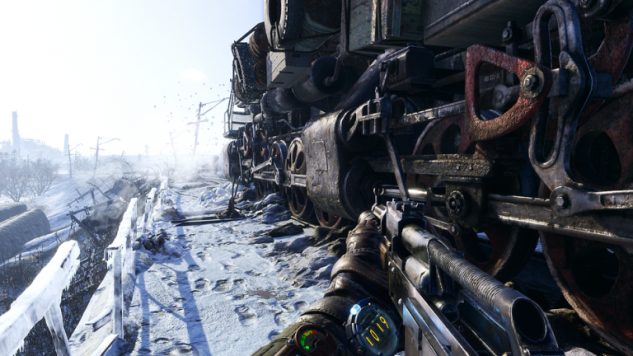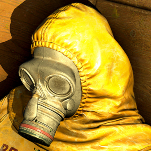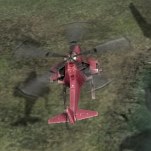Metro Exodus: Messy, Familiar, and Beautifully Weird

I hated the first two hours of Metro Exodus. I hated them so much that I started internally referring to it as The Worst Game Of 2019. It’s a bold statement, but also one I felt was fully justified. There was no bartering for good bullets. There were zombies and mutants roaming the generic wasteland. I couldn’t figure out where I was going most of the time. And yet I stuck it out, and on the other end of the experience I have to say that Exodus is one of the more interesting games that I’ve played in the past few years. It isn’t my favorite game of all time, but it is very far from the worst, and if its reach surpasses its grasp then, well, at least it obviously aimed for something grand.
The problem is that the few first hours don’t have much of that reach in them. They’re safe by the measure of a Metro game, and by “safe” I mean that they are extremely boring. The opening of Exodus puts you in the subterranean tunnels of Moscow hunting enemies and evading pursuers. You’re shooting in the dark on some kind of big, important mission, and this culminates in the realization that there is life outside Moscow. And so you go find it.
There’s nothing you will find in Exodus that you won’t find in the vast majority of post-apocalyptic fiction. This particular universe is a nuclear wasteland marked by radiation, and it fills that world out by populating it with easily grasped fears and ideas that existed in science fiction before nuclear weapons were even invented. Anti-technological cults or gun-and-oil barons that enslave and control their regions with an iron grip are what’s on the menu, and if you’re invested in this genre in any way the narrative and conceptual experience is one of nodding and saying “yep” at every turn. It stamps on played-out sci fi scenarios like the characters stomp on the skulls of the old world, and yet it really cannot, even in the final moments, leave all of that behind.
For its first couple hours the game can’t think beyond the horizon that the genre has set for it. The first “open world” segment that the game offers you, of which there are a few, is a dreary gray wasteland that’s oddly paced and doesn’t make much narrative sense. The flow of the game at that point, which continues throughout, is that the player character named Artyom and his rag-tag group of special forces friends must get on a train called the Aurora and travel across the Russian countryside in search of a place that was unaffected by the nuclear war of the past. It’s not simple, and it takes them to some truly interesting locations, but it starts out with rote fetch quests in the most unimaginative places possible. You fight zombies. Sometimes you fight enemy humans. It is a slog.
But if you can push past that, accrue a little bit of equipment, and get into the groove of things, you can find something that’s trying to pull together threads from Far Cry 2, Bioshock, and the previous claustrophobic Metro games. Semi-open worlds become a playground for some chunky combat that has you taking cover, popping out to land a few shots, and then ducking back behind a bombed-out tool shed. In a moment of reprieve, you take your backpack off, equip a longer-ranged sight for your assault rifle, and then get back into the action by retreating up a cliff face and taking fight in a different, more snipe-y way. The game truly gives you to the tools to play it on variable terms, and when it was firing on all cylinders I felt like I could respond to each design pivot with a move of my own. The game responded to me and forced me to respond in turn, and that dynamism is sadly lacking across games.
-

-

-

-

-

-

-

-

-

-

-

-

-

-

-

-

-

-

-

-

-

-

-

-

-

-

-

-

-

-

-

-

-

-

-

-

-

-

-

-








































